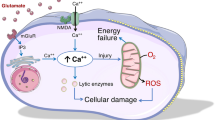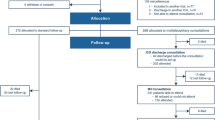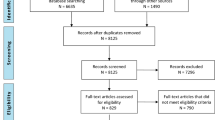Abstract
Objective
(1) Determine the pervasiveness of the belief that brain death/death by neurologic criteria (BD/DNC) is not death among rabbis. (2) Examine rabbinic beliefs about management after BD/DNC.
Methods
An electronic anonymous survey about BD/DNC determination and management after BD/DNC was created and distributed to members of the Central Conference of American Rabbis (the Reform Rabbinic leadership organization), the Rabbinic Council of America (an Orthodox organization), the Rabbinic Assembly (a Conservative organization), and the Reconstructionist Rabbinic Association.
Results
Ninety-nine rabbis (40 Reform, 32 Orthodox, 22 Conservative, and 5 Reconstructionist) completed the survey. Awareness of the requirements for BD/DNC was poor (median of 33% of the requirements correctly identified [interquartile range of 22–66%]), but 81% of rabbis knew that absence of heartbeat is not required for BD/DNC. Although only 5% of all rabbis believed a person who is brain dead could recover, 22% did not believe BD/DNC is death, and 18% believed mechanical ventilation should be continued after BD/DNC. There was a significant relationship between denomination and belief that: (1) a person who is brain dead can recover (p = 0.04); (2) a person who is brain dead is dead (p < 0.001); (3) mechanical ventilation should be continued after BD/DNC (p < 0.001); (4) hydration should be continued after BD/DNC (p = 0.002); (5) nutrition should be continued after BD/DNC (p < 0.001); (6) medications to support blood pressure should be continued after BD/DNC (p < 0.001); and (7) cardiopulmonary resuscitation should be performed when a brain dead person’s heart stops (p = 0.006).
Conclusions
Rabbinic knowledge about the intricacies of BD determination is poor. Rabbinic perspectives on management after BD/DNC vary. These empirical data on rabbinic perspectives about BD/DNC may be helpful when considering accommodation of religious objections to BD/DNC.

Similar content being viewed by others
References
A definition of irreversible coma. Report of the Ad Hoc Committee of the Harvard Medical School to examine the definition of brain death. JAMA. 1968;205:337–40.
Lewis A, Cahn-Fuller K, Caplan A. Shouldn’t dead be dead?: The search for a uniform definition of death. J Law Med Ethics. 2017;45:112–28.
Wahlster S, Wijdicks E, Patel P, et al. Brain death declaration: practices and perceptions worldwide. Neurology. 2015;84:1870–9.
Steinman GD. On life and death: a commentary from Jewish perspective. J Med Ethics. 1995;21:368.
Breitowitz RYA. The brain death controversy in Jewish Law. Jewish Law. 2015. http://www.jlaw.com/Articles/brain.html. Accessed 25 Mar 2015.
Nevins DS. Dead or alive? Halakhah and brain death. Conserv Jud. 2005;57:3–19.
Schostak Z. Halakhic parameters for removing patients from a ventilator. Tradition. 2003;37:42–65.
Kunin J. Brain death: revisiting the rabbinic opinions in light of current medical knowledge. Tradition. 2004;38:48–62.
Reichman E. The halakhic definition of death in light of medical history. Torah U Madda J. 1993;4:148–74.
Bleich JD. A survey of the recent Halakhic periodical literature. Tradit J Orthodox Thought. 1977;16:121–38.
Rosner F. Jewish perspectives on issues of death and dying. J Halacha Contemp Soc. 1986;11:50–69.
Rappaport ZH, Rappaport IT. Principles and concepts of brain death and organ donation: the Jewish perspective. Child’s Nerv Syst. 1998;14:381–3.
Segal E. Religious objections to brain death. J Crit Care. 2014;29:875–7.
Lewis A, Varelas P, Greer D. Prolonging support after brain death: when families ask for more. Neurocrit Care. 2016;24:481–7.
Pope TM. Brain death: legal duties to accommodate religious objections. Chest. 2015;148:e69.
Lewis A, Adams N, Chopra A, Kirschen M. Organ support after death by neurologic criteria in pediatric patients. Crit Care Med. 2017;45:e916–24.
Lewis A, Adams N, Varelas P, Greer D, Caplan A. Organ support after death by neurologic criteria: results of a survey of US neurologists. Neurology. 2016;87:827–34.
Bosek MSD. Respecting a patient’s religious values: what does this require? JONAS Healthc Law Ethics Regul. 2008;10:100–5.
Smith ML, Flamm AL. Accommodating religious beliefs in the ICU: a narrative account of a disputed death. Narrat Inqu Bioeth. 2011;1:55–64.
In re Long Island Jewish Medical Ctr., 168 Misc. 2d 576, 641 N.Y.S.2d 989, 1996 N.Y. Misc. LEXIS 126 (N.Y. Sup. Ct. February 28, 1996).
Shalom Ouanounou v. Humber River Hospital, Ali Ghafouri, Garret Pulle, Sanjay Manocha, Dr. David Giddons, Coroner, and Office of the Chief Coroner. Ontario Superior Court of Justice; 2017.
The Canadian Press. Family of Toronto man declared brain dead says finding goes against his religion. CTV News. 2017 [cited 2019 Jan 21]. https://www.ctvnews.ca/canada/family-of-toronto-man-declared-brain-dead-says-finding-goes-against-his-religion-1.3658380.
Hoffman R. Judge rules that hospital must rescind death certificate for orthodox patient. Hamodia. 2019 [cited 2019 Jan 22]. https://hamodia.com/2019/01/20/judge-rules-hospital-must-rescind-death-certificate-orthodox-patient/.
Flamm AL, Smith ML, Mayer PA. Family members’ requests to extend physiologic support after declaration of brain death: a case series analysis and proposed guidelines for clinical management. J Clin Ethics. 2014;25:222–37.
Davidson T. Clear definition of death, accommodation of religious beliefs is needed, says lawyer in life support case. Lawyer’s Dly. 2017 [cited 2018 Mar 9]. https://www.thelawyersdaily.ca/articles/5200.
Johnson LSM. The case for reasonable accommodation of conscientious objections to declarations of brain death. J Bioeth Inq. 2016;13(1):105–15.
Olick RS, Braun EA, Potash J. Accommodating religious and moral objections to neurological death. J Clin Ethics. 2009;20:183–91.
Luce JM. The uncommon case of Jahi McMath. Chest. 2015;147:1144–51.
Yanke G, Rady MY, Verheijde JL. When brain death belies belief. J Relig Health. 2016;55:2199–213.
Setta SM, Shemie SD. An explanation and analysis of how world religions formulate their ethical decisions on withdrawing treatment and determining death. Philos Ethics Humanit Med. 2015;10:1–22.
Grodin MA. Religious exemptions: brain death and Jewish law. J Church State. 1994;36:357–72.
Harris PA, Taylor R, Thielke R, Payne J, Gonzalez N, Conde JG. Research electronic data capture (REDCap)—a metadata-driven methodology and workflow process for providing translational research informatics support. J Biomed Inform. 2009;42:377–81.
Sheer C. Torah U-Madda and the brain death debate. In: Farber Z, editor. Halachic realities-collected essays on brain death. UK: Maggid; 2015.
Cunningham CT, Quan H, Hemmelgarn B, et al. Exploring physician specialist response rates to web-based surveys. BMC Med Res Methodol. 2015;15:32.
Acknowledgements
The author would like to thank (1) Rabbi Steve Goodman for his help designing this survey, (2) Rabbis Mark Dratch, Linda Henry Goodman, Leonard Sharzer, and Elyse Wechterman for distributing this survey, and (3) all of the rabbis who completed this survey.
Funding
None.
Author information
Authors and Affiliations
Contributions
AL was responsible for conception and design, analysis, and interpretation of data, drafting the manuscript, statistical analysis, and final approval of the manuscript.
Corresponding author
Ethics declarations
Conflicts of Interest
Ariane Lewis has no disclosures or conflicts of interest.
Ethical Approval/Informed Consent
None.
Data
Ariane Lewis takes responsibility for the data and accuracy of data analysis.
Additional information
Publisher's Note
Springer Nature remains neutral with regard to jurisdictional claims in published maps and institutional affiliations.
Electronic supplementary material
Below is the link to the electronic supplementary material.
Rights and permissions
About this article
Cite this article
Lewis, A. A Survey of Multidenominational Rabbis on Death by Neurologic Criteria. Neurocrit Care 31, 411–418 (2019). https://doi.org/10.1007/s12028-019-00742-3
Published:
Issue Date:
DOI: https://doi.org/10.1007/s12028-019-00742-3




